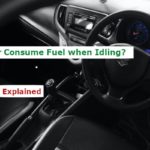Is BMW E39 Reliable? (What to Expect)
A legendary 5 series lineup, BMW E39 really set the bar high for German automotive engineering. It was a completely redesigned car with extensive use of aluminum, an all-new suspension, a first-time V8, and smart technology onboard.
E39 was also the first 5 series with air-suspension, an upgraded VANOS, and a smart latent heat accumulator system. It is also regarded as a considerably reliable car in terms of overall performance and long-term dependability. Let’s have a look at the BMW E39 in detail, including its reliability, powertrains, maintenance, and repairs.
Is BMW E39 Reliable?
BMW E39 is considered to be a fairly reliable car and has pretty solid build quality. It is available with a range of robust engines & transmissions, suspension, and convenience features. If maintained regularly and kept with care, BMW E39 can easily serve you beyond 300,000 miles.
The extensive use of aluminum and completely redesigned mechanical parts gave E39 an upper hand over other cars of the same era and it also had reliable electronics that kept the car on the road than in the workshops.
If you’re confused about buying a premium car that is reliable and not that expensive to purchase in the used market, a less-driven BMW E39 should be on your list.
Also read: Is BMW E46 Reliable? (Things you Need to Know)
What are the Most Common Problems with the BMW E39?
Despite its rock-solid build quality and undeniable reliability, BMW E39 also has its fair share of mechanical and electrical issues. Some common problems with a BMW E39 include cooling system issues, oil leakage, suspension problems, faulty LCD, and steering wheel problems.
All of these problems tend to occur after some years of purchase, especially if the maintenance schedule is not properly followed.
1- Cooling System Issues
This common problem occurs due to a faulty thermostat and water pump. The coolant is not properly sent to the engine and causes frequent overheating of the car. This problem usually occurs after 125,000 miles and mostly if a proper inspection of the engine components is not carried out.
2- Oil Leakage
The problem of oil leakage is also very common and occurs due to faulty hoses and valve cover seals. The car keeps dripping oil after it is parked, and the seals need to be repaired to get rid of this issue. It usually occurs after 100,000 miles.
Also read: Is BMW E60 Reliable? (Read Before You Buy)
3- Suspension problems
The most common failing part of the suspension system in a BMW E39 is the Thrush arms bushings. These plastic parts are quite fragile and easily get damaged after 100,000 miles if the car is used roughly. It is advisable to replace these bushings every 75,000 miles.
4- Faulty LCD
Some owners of BMW E39 have reported their car infotainment LCD to drop pixels and show random hazy displays out of nowhere. The culprit behind this problem can be a loose cable or a software issue. This problem can occur as early as 80,000 miles and is not so hard to get fixed.
5- Steering Wheel Problems
The problem reported with the steering wheel in BMW E39 is constant vibrations at low speeds, and delayed response at turns. The main problem behind these symptoms is the faulty U-joint and steering shaft. These parts should be replaced to get rid of steering problems in an E39.
Cost of Fixing the Common Problems with the BMW E39
| Fault | Cost | |
| 1 | Cooling system issues | $550-600 |
| 2 | Oil leakage | $400 |
| 3 | Suspension problems | $700 |
| 4 | Faulty LCD | $100-250 |
| 5 | Steering wheel problems | $600 |
Also read: Is BMW E36 Reliable? (with Buying Tips)
Which BMW E39 Years are the Best and Worst?
BMW E39 is regarded by some enthusiasts as one of the best 5 Series, but some model years had problems and should be avoided while buying a used BMW E39.
Best BMW E39 Model Years
- 1998
- 2002
- 2003
Worst BMW E39 Model Years
- 1996
- 1997
- 1999
Although these years had some faults and mechanical problems, but cannot be labeled as the worst.
Which BMW E39 Engines are the Most and Least Reliable?
BMW E39 came with different engines and configurations of powertrain over the years. Some of those engines are quite solid with durability, while others are not so good. The good ones are M62 and M54, while the engine with reliability issues is the M52.
Most Reliable BMW E39 Engines
- M62
This 3.5L V8 engine is a powerful motor that not only is fun to drive but very dependable as well. Some common problems can still occur after 150,000 miles.
- M54
The 2.5L straight-6 engine was a major upgrade over the M52 and offers adequate durability with outclass performance. It would last a lifetime if maintained properly.
Least Reliable BMW E39 Engines
- M52
M52 was not a disaster, but still has some frequent problems, such as oil leakage, water pump issues, and valve timing problems.
Is BMW E39 Safe?
BMW E39 is a fairly safe car to drive, and it pioneered various safety standards. A highly rigid and lightweight aluminum chassis, providing extra safety and multiple crumple zones. It was the first BMW with front curtain airbags. Although its more than 2 decades old, still it fares very well in the safety department.
The safety equipment on a BMW E39 include;
- ABS with all-wheel disc brakes
- Electronic Traction control.
- 4 SRS Airbags.
- 3-point seatbelts with pre-tensioners and load limiters.
IIHS Safety Rating: Good
Also read: Is BMW E38 Reliable? (What to Expect?)
How Much Does BMW E39 Cost to Maintain?
These are some of the BMW E39 maintenance costs and yearly running expenses;
- Oil change: $150
- Filters (air, oil, and fuel): $280
- Brake fluids: $200
- Cost of a tire: $250
- Gear oil: $250
- Labor charges: $250-400
Total: $1,430
Yearly maintenance cost: average $1,430
Yearly Fuel Cost: average $2,400
Insurance Cost: $900-1,000
What is a Good Mileage for the BMW E39?
200,000 miles can be regarded as a good mileage for BMW E39, although they can easily go beyond 300,000 if maintained properly. If you’re planning to buy a used BMW E39, a well-kept car with around 200,000 miles would be the ideal option. E39 is a very robust vehicle with solid engines, gearboxes, and overall durability.
So, if the maintenance history is intact, kept by a single owner throughout, and hasn’t been in any major accidents, a BMW E39 with 200,000-mileage can be a great buy.
What Parts Should You Replace and After How Many Miles?
Like any other car on the road, the BMW E39 also requires regular maintenance and servicing to remain in top condition. The parts and lubricants that require replacement at regular intervals include engine oil and filter, brake pads, timing belt, suspension components, and a few others.
| Parts | Interval | |
| 1 | Lubricants | 10,000 miles |
| 2 | Air, oil, and fuel filter | 10,000 miles (20,000 for fuel filter) |
| 3 | Brake pads | 20,000 miles |
| 4 | Suspension bushes | 75,000 miles |
| 5 | Spark plugs | 75,000 miles |
| 6 | Gear oil | 40,000 miles |
Are BMW E39 Parts Widely Available?
BMW has a mature dealer network in all the 7 continents, with operations in over 100 countries across the globe. The BMW E39 can be found in all the major cities around the world, and can also be sourced online via the factory.
BMW E39 is one of the most popular models of the 5 Series and is considered a great buy in the competitive price range. Spare parts of BMW are easily available and in case you cannot find them at an authorized dealership, the company can arrange them from their head office.
If you cannot find OEM parts or if they’re too costly, you can rely on aftermarket parts as well, given that they have been manufactured by a regulated/certified company.
How to Buy a Reliable BMW E39?
Remember these points if you want to buy a reliable BMW E39;
- Get an unbiased opinion on the car’s condition by a third-party inspection team.
- Thoroughly check the maintenance history and ownership records. Ask for the CARFAX report, and inspect everything personally.
- Try to find an E39 with low mileage and preferably a non-accident car.
- Ask the previous owner about the replacement of faulty/damaged parts and check if the car has undergone any recall from the company.
- Try to avoid an E39 with rusting in the undercarriage area and engine mountings.
- Before finalizing the deal, take a test drive yourself and make sure everything is alright with the car.
BMW E39 – Pros & Cons
Pros
- A luxury sedan with a plush interior and iconic styling.
- Rock-solid engine and outstanding performance.
- Highly reliable powertrain and aluminum frame of the care is very durable.
- Can be easily bought in around $10-12k.
- One of the most amazing cars to drive with engaging rear-wheel drive and sporty manual transmission.
- E39 is a fairly comfortable car with ample storage spaces & convenience features.
Cons
- Maintenance and repairs can be very costly.
- The spare parts of E39 are also expensive, especially the M5 variant.
- It is a gas guzzler and not so economical to run daily.






